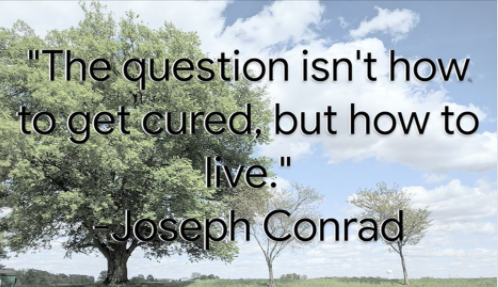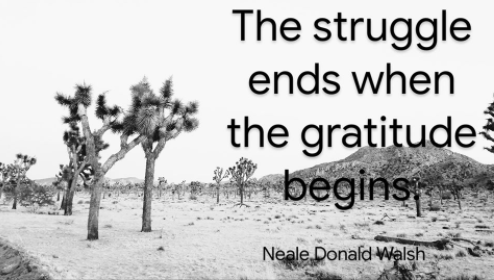
The question isn’t how to get cured, it’s how to live.
By the time most people reach out for help for addiction, the gap between themselves and their families is vast. Trust is in shambles and communication feels impossible. A sense of loss and overwhelm is pervasive throughout the family. It’s hard for family to understand what’s really going on, or what to do to help their loved one. If people with substance use disorder could tap into their best selves for a moment, they would tell their loved one’s this:
Active addiction means the drug is more important.
It’s infuriating when your son messes up one more Christmas, and mind-boggling when your daughter shows up high to her one chance at a great job. It drives the best of families nuts when they can’t pull it together for just this one special event, just this one time. But in active addiction, the drug is more important. The brain has reprioritized all of its needs, making substances more important than even food, sleep, and safety. Certainly more important than court dates, relationships, and holidays.
The disease model of addiction points to research that shows a shift in brain activity. Everyone has a limbic system, which includes the amygdala and hippocampus. This part of the brain is fully formed from birth. It’s the part of the brain that causes babies to cry for food and comfort dozens of times a day. As the brain develops, other parts of the brain are able to reason with this survival-only, infant brain. An adult’s amygdala says, “Agh! I’m hungry right now! Feed me!” An adult’s pre-frontal cortex says, “Sure, no problem. In half an hour, we have our lunch break. We’ll eat then.” The person can then decide to stay with the current activity, knowing that food is coming.
In addiction, the priorities of the limbic system shift from food and safety, to drugs and alcohol. Substances get more survival value to the addicted brain than anything else. The pre-frontal cortex is no match for this chemical imbalance. As long as substances remain in the brain, the brain’s ability to make healthy choices is nearly gone.
It’s not personal.
Mayors of major cities, mom’s of the year, and medical professionals have all recently exposed their own families’ struggles with addiction. Parents who gave their children everything and parents who were objectively neglectful have all had kids who struggle with substance use disorders. The best of spouses and partners have run full force into their other half’s alcohol abuse.
People don’t use drugs and alcohol because they don’t love their kids or their families. In the depths of their addiction, they might even say that they used because of something you did. Often, even in early sobriety, they realize that this isn’t really the case. They drink and use because their brain thinks it’s more important that everything else. They blame others because they often don’t understand their own illogical behavior. At the end of the day, families need to know that it’s not your fault. Families need to be reassured that it was never about you. To borrow the Al-Anon adage, “you didn’t cause, you can’t control it, and you can’t cure it”.
They are not lying to you.
Oh yes, they are definitely lying. They often lie in addiction, lie in recovery, and lie when there’s no reason to lie. But they are never lying specifically to you, as a reflection on their relationship with you. In active addiction, they are lying to protect their access to their substance of choice. Much like you might lie if someone tried to convince you that you no longer needed air to breathe. In active addiction, lying comes with the territory. It makes more sense than truth, because pursuing a substance makes more sense than anything else.
Dishonesty in early recovery is often because they are out of practice in the truth-telling department. They are often just as baffled by their dishonesty as their family members. Why say that you had a burger for lunch, when you really had pizza? No one knows. Generally, they don’t know either. With sober time, practice, and accountability, honesty improves. Be careful what you wish for, sometimes honesty improves too much (Think…”no, that shirt really doesn’t look good on you at all”).
They want help…and they don’t want help.
The moment of willingness to get sober can be so fleeting. Families know that a phone call begging for help can often be followed up quickly with two days of no contact at all. If you’re willing to help, know in advance what you’re willing to do. What does help mean to you? Is it money, food, gas, housing? Is it treatment, and a ride to the front door of rehab?

Gratitude
There are a couple of things to consider when deciding on your boundaries. The first is to consider what you’ve tried before, and if it worked. If you’ve already tried gift cards for gas, and it resulted magically in a two-day bender, then it might be worth rethinking that kind of help. Another guideline is to consider your own needs. That’s right, it’s OK to think about your own needs. Often, those get set aside in the chaos of addiction, but one of your greatest guides for what boundaries to set is to tune into your own feelings. If you’re exhausted because you’ve put yourself on-call 24/7, then your exhaustion alone is a good reason to set a different boundary. Have these boundaries settled in your own mind first. If it’s treatment, have a few phone numbers on hand as well. If they are really ready this time, then you can be too.
Talk about something besides addiction.
If they are currently under the influence, there’s probably not a lot of conversation to be had at all. Looping back to brain chemistry, it’s nearly the same as trying to have a rational discussion with a hungry infant. However, in periods of sobriety, in treatment, or in early recovery, talk about something else. They know you’re afraid, angry, and doubtful. They might be, too. So talk about the weather, or sports. Update them on family gossip. Even tell them about your day. Basic conversations can remind both of you that you’re in this together, and the future doesn’t have to revolve around addiction.
Are you finding it impossible to think of anything but your loved one and her recovery? Then it might be time to find some support for yourself. Maybe you’re not ready for the whole world to know what your family is going through, but find a couple of understanding and supportive friends and open up to them. Tap into your own resources for counseling. Give Al-Anon, or another peer support group, a few tries. For many families, the process of addiction and recovery is long, tedious, and includes some setbacks. Prepare for this by prioritizing your own self-care, and well-being. Your family is not alone in this struggle, so don’t keep living as if you are.







